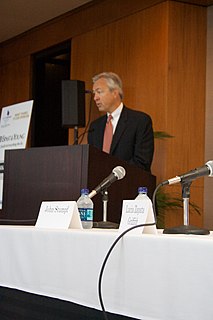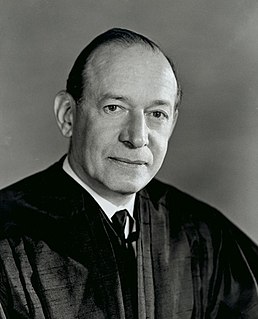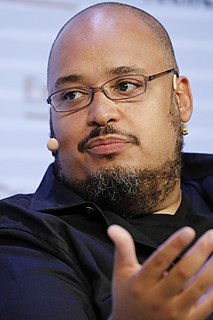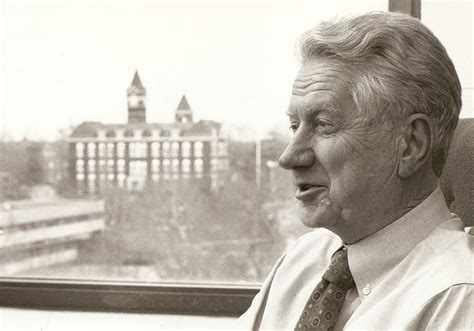A Quote by Adam Grant
If you don't hire originals, you run the risk of people disagreeing but not voicing their dissent.
Related Quotes
We must dissent from the indifference. We must dissent from the apathy. We must dissent from the fear, the hatred and the mistrust. We must dissent from a nation that has buried its head in the sand, waiting in vain for the needs of its poor, its elderly, and its sick to disappear and just blow away. We must dissent from a government that has left its young without jobs, education or hope. We must dissent from the poverty of vision and the absence of moral leadership. We must dissent because America can do better, because America has no choice but to do better.
The fact that there are singer-songwriters dealing with substantive issues is encouraging. It's important for young people to perceive that there are acceptable avenues of dissent, because we live in a world where dissent is hard-pressed; treated as if it were unpatriotic. I've always liked the concept of the loyal opposition. It allows for dissent to be a respectable part of the whole.
I wish I could say that racism and prejudice were only distant memories... We must dissent from the indifference. We must dissent from the apathy. We must dissent from the fear, the hatred and the mistrust... We must dissent because America can do better, because America has no choice but to do better.
Disagreement produces debate but dissent produces dissension. Dissent (which come from the Latin, dis and sentire) means originally to feel apart from others. People who disagree have an argument, but people who dissent have a quarrel. People may disagree and both may count themselves in the majority. But a person who dissents is by definition in a minority. A liberal society thrives on disagreement but is killed by dissension. Disagreement is the life blood of democracy, dissension is its cancer.
In America, religious dissent is as vital as it is elusive. Like the secretions of the pituitary, the juices of dissent are essential to ongoing life even if we do not always know precisely how, when or where they perform their tasks, and the not knowing - the flimsy, filmy elusiveness - is supremely characteristic of America's expressions of religious dissent. For in the United States no stalwart orthodoxy stands ever ready to parry the sharp thrust or clever feints of dissent.

































